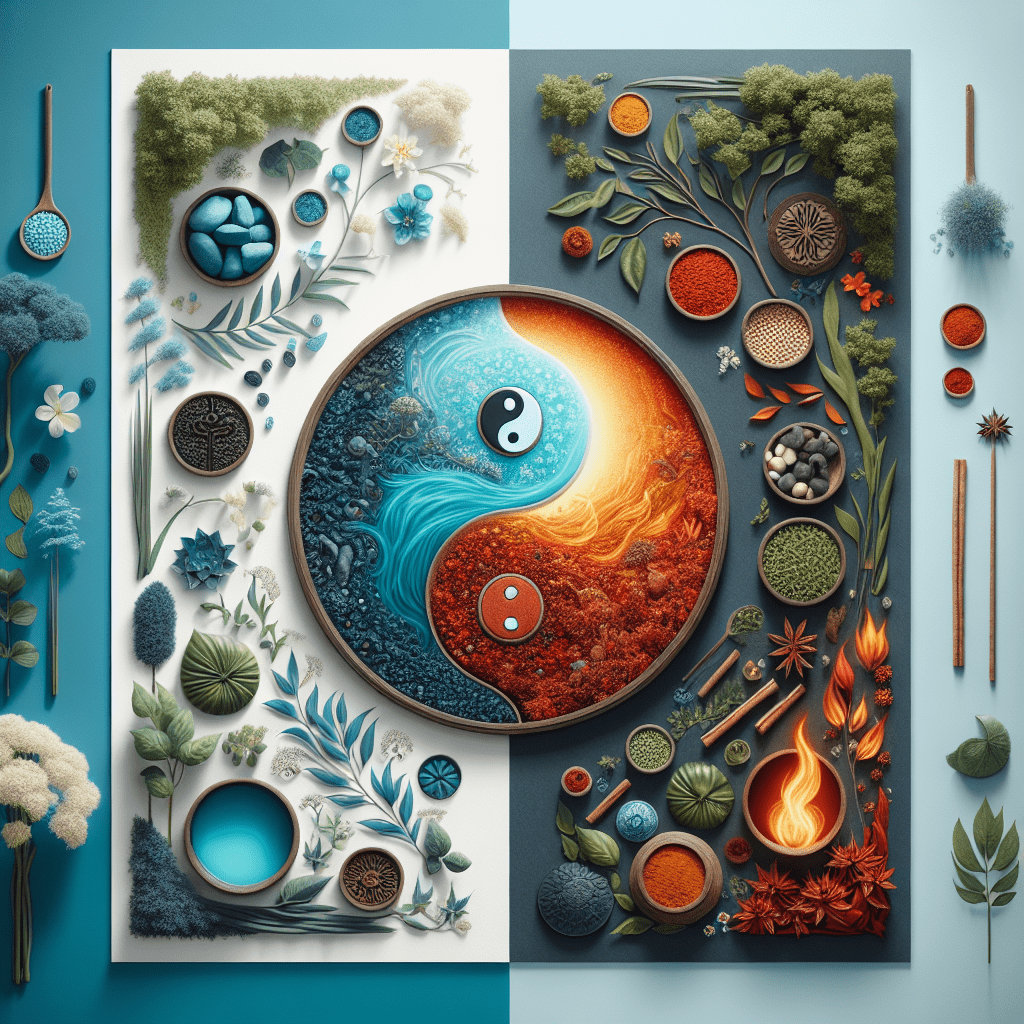In a world of ever-evolving diet trends and nutritional advice, the concept of holistic nutrition stands as a timeless approach to nourishing not just our bodies, but our minds and spirits as well. Holistic nutrition isn’t simply about counting calories or following the latest food fad—it’s a comprehensive philosophy that recognizes food as a powerful healing tool that connects all aspects of our wellbeing.
The beauty of holistic nutrition lies in its understanding that what we eat affects how we feel, think, and interact with the world around us. It acknowledges that food is information, medicine, and energy all at once. And increasingly, health-conscious individuals are discovering the profound benefits of blending ancient Eastern wisdom with modern Western nutritional science to create truly balanced approaches to eating and living.
This growing interest in books on holistic nutrition isn’t surprising. As more of us experience the limitations of conventional dietary approaches, we’re naturally drawn to deeper wisdom that has sustained human health for thousands of years, now validated by cutting-edge research.
The Foundations of Eastern Nutritional Wisdom
Long before nutritional labels and calorie-counting apps, Eastern healing traditions like Ayurveda and Traditional Chinese Medicine (TCM) developed sophisticated systems for understanding the relationship between food and health. These ancient approaches view nutrition not as a standalone science but as an integrated part of overall wellness.
Ayurveda, India’s 5,000-year-old “science of life,” classifies individuals according to their dominant dosha (energy type)—Vata, Pitta, or Kapha. Each dosha responds differently to various foods, seasons, and life circumstances. An Ayurvedic approach to nutrition is highly personalized, recommending specific foods and eating patterns based on your unique constitution and current imbalances.
For example, a fiery Pitta type might be advised to avoid hot, spicy foods during summer months, while a Vata type might benefit from warm, grounding foods during the windy fall season. This seasonal attunement and personalization stands in stark contrast to one-size-fits-all dietary guidelines.
Traditional Chinese Medicine offers another profound perspective, organizing foods according to their energetic properties rather than just their nutrient content. TCM categorizes foods as warming or cooling, and associates them with specific organ systems and meridians (energy pathways) in the body.
A TCM practitioner might recommend warming foods like ginger and cinnamon for someone with cold extremities and low energy, while suggesting cooling foods like cucumber and watermelon for someone experiencing inflammation or heat symptoms. This approach recognizes that the same food might be medicine for one person and problematic for another.
Both traditions emphasize mindful eating practices—being fully present with your meal, eating in a calm environment, chewing thoroughly, and appreciating the life-giving qualities of your food. These practices enhance digestion and nutrient absorption while fostering a healthier relationship with eating.
Modern Nutritional Science: A Complementary Perspective
While Eastern traditions offer profound wisdom about food’s energetic properties, modern nutritional science provides valuable insights into the biochemical aspects of what we eat. Today’s nutrition research has identified vitamins, minerals, antioxidants, and other compounds that play specific roles in bodily functions, from cellular repair to hormone production.
What’s fascinating is how modern science increasingly validates many ancient practices. For instance, research now confirms the importance of individualized nutrition, showing how different people can have wildly different blood sugar responses to identical foods. Studies on chrono-nutrition (the timing of eating) support traditional wisdom about eating in alignment with natural rhythms.
The emerging field of nutritional psychiatry has established clear connections between gut health and mental wellbeing, echoing Eastern traditions that have always linked digestion to emotional balance. The gut-brain axis, now a hot topic in scientific research, was understood by Eastern healers millennia ago through different terminology and frameworks.
Modern science also brings valuable tools for understanding aspects of nutrition that weren’t available to ancient practitioners—like our knowledge of specific nutrients and their cellular functions, the microbiome’s role in health, and genetic factors that influence nutritional needs.
Where East Meets West: The Integration of Wisdom
The most exciting developments in holistic nutrition today come from the thoughtful integration of ancient wisdom and modern science. This isn’t about choosing between traditions, but about creating a more complete picture by drawing from multiple sources of knowledge.
For instance, we can use Ayurvedic principles to understand our basic constitution and tendencies, while employing modern testing methods to identify specific nutrient deficiencies or food sensitivities. We can practice TCM’s seasonal eating while ensuring we meet contemporary nutritional requirements.
The best books on holistic nutrition bridge these worlds, honoring traditional wisdom while incorporating scientific understanding. They help us see how these approaches complement rather than contradict each other, creating a more complete nutritional philosophy.
Here are seven transformative books that masterfully blend Eastern healing traditions with Western nutritional science:
“East by West” by Jasmine Hemsley – A beautiful exploration of Ayurvedic wisdom adapted for modern Western lifestyles, featuring 140 delicious recipes from around the world. Hemsley champions the ancient philosophy of eating to nourish, sustain and repair for ultimate mind-body balance.
“The Tao of Nutrition” by Maoshing Ni and Cathy McNease – This practical guide combines Traditional Chinese Medicine with modern nutritional science, offering specific dietary recommendations for common health concerns and constitutional types.
“Body Thrive” by Cate Stillman – Drawing deeply from Ayurvedic wisdom while incorporating modern habit science, this book presents 10 ancient practices for radiant health and their contemporary scientific validation.
“Healing With Whole Foods” by Paul Pitchford – A comprehensive resource that integrates Traditional Chinese Medicine with Western nutrition. Pitchford explains the energetic properties of foods alongside their nutritional components, making Eastern concepts accessible to Western readers.
“The Prime” by Dr. Kulreet Chaudhary – Written by a neurologist trained in both Western medicine and Ayurveda, this book offers a practical protocol for optimizing gut health and brain function through integrative principles.
“Food: What the Heck Should I Eat?” by Dr. Mark Hyman – While not exclusively focused on Eastern traditions, Hyman’s approach embodies holistic principles and incorporates traditional wisdom alongside cutting-edge nutritional research.
“Mindful Eating” by Jan Chozen Bays – This insightful work bridges Buddhist mindfulness practices with modern understanding of psychology and nutrition, addressing our relationship with food at a deeper level.
These books on holistic nutrition offer far more than just recipes or eating plans—they provide frameworks for understanding your unique body and its needs, tools for cultivating awareness around eating, and strategies for using food as medicine in the truest sense.
The Benefits of a Holistic Approach to Nutrition
Adopting a holistic approach to nutrition—one that integrates Eastern wisdom with Western science—offers profound benefits that go far beyond physical health:
Deeper Understanding of Your Unique Body: Rather than following generic guidelines, you learn to recognize how different foods affect you specifically, developing an intuitive sense of what your body needs in different seasons and circumstances.
Improved Digestion and Assimilation: Both Ayurveda and TCM place tremendous emphasis on digestive health as the foundation of overall wellbeing. Their practices for optimizing digestion—like eating mindfully, combining foods appropriately, and adjusting meals to seasons—can dramatically improve nutrient absorption and reduce digestive discomfort.
Enhanced Mental Clarity: Eastern traditions recognize the profound connection between diet and mental function. Many people report improved concentration, clearer thinking, and greater emotional stability when adopting nutrition principles that balance their specific constitution.
Sustainable Energy Levels: Instead of the energy peaks and crashes associated with modern eating patterns, holistic approaches aim to provide steady, consistent energy throughout the day by balancing macronutrients and eating in rhythm with your body’s natural cycles.
Stronger Connection to Nature and Seasons: Eating seasonally and locally, as emphasized in traditional systems, reconnects us with natural cycles and the wisdom of nature’s timing. This not only improves nutritional intake but fosters a deeper sense of belonging in the natural world.
Prevention-Oriented Wellness: Eastern nutritional systems excel at identifying and addressing subtle imbalances before they develop into disease. They offer sophisticated frameworks for using food proactively to maintain balance rather than reactively to address illness.
Personalized Approach: Perhaps most importantly, holistic nutrition rejects one-size-fits-all prescriptions in favor of personalized recommendations based on your body type, age, activity level, climate, and current health status.
Embracing Your Holistic Nutrition Journey
As you explore books on holistic nutrition and begin integrating these principles into your life, remember that this is a journey of self-discovery rather than a rigid set of rules. The wisdom of both Eastern and Western approaches teaches us to be adaptable, observant, and responsive to our changing needs.
Start small by incorporating one or two concepts that resonate most strongly with you. Perhaps begin with mindful eating practices, or experiment with foods recommended for your constitutional type. Pay attention to how different foods make you feel, not just immediately after eating but in the hours and days that follow.
Consider keeping a food and mood journal to identify patterns and connections. This kind of self-awareness is at the heart of holistic nutrition—the understanding that you are the ultimate authority on your body and its needs, though ancient wisdom and modern science can provide valuable guidance.
The integration of Eastern wisdom and Western nutritional science offers something truly special: a comprehensive approach that honors both the physical and energetic aspects of food, that values traditional knowledge while embracing scientific discovery, and that treats eating not just as fuel but as a sacred act that connects us to ourselves, to nature, and to the long lineage of human wisdom about nourishing body, mind, and spirit.
By exploring these seven transformative books on holistic nutrition, you’re taking an important step toward a more balanced, intuitive, and personalized relationship with food—one where East meets West in perfect harmony for your unique wellness journey.




